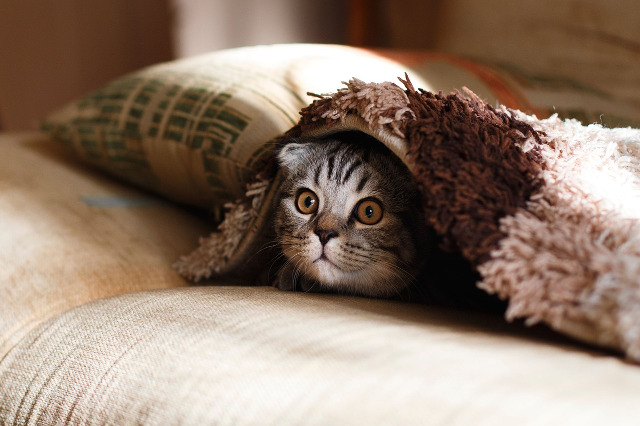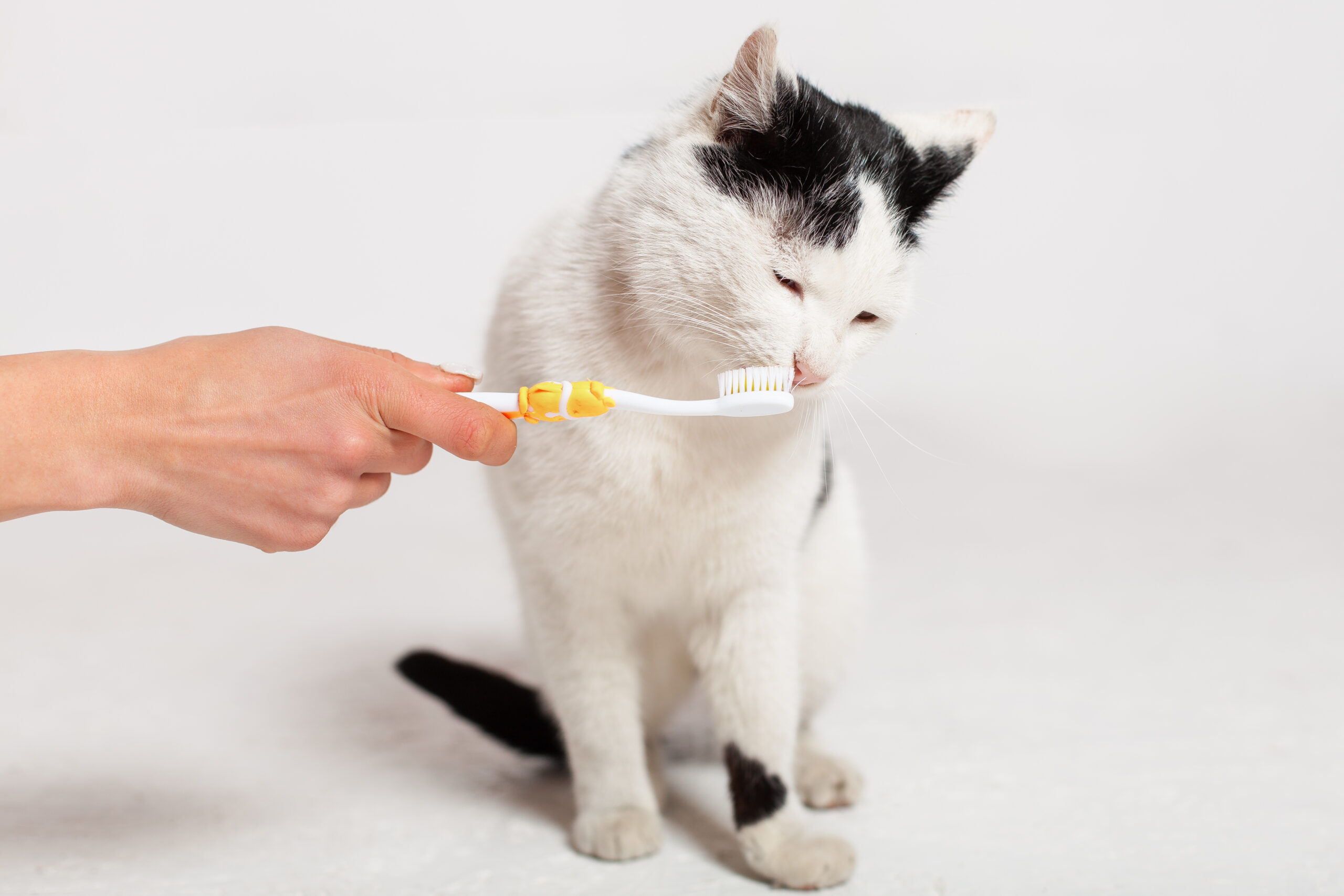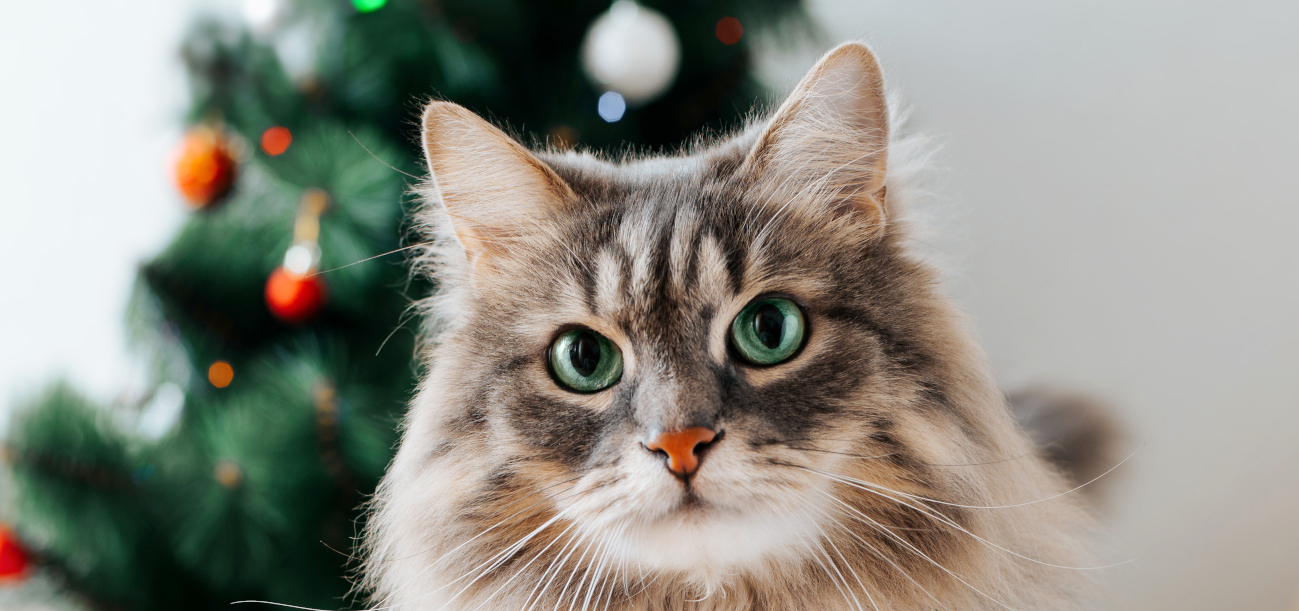Stress. It happens to everyone, for many reasons. Did you know that pets can feel stressed too?
Although both cats and dogs can get stressed out, cats are a little more concerning in terms of identifying stress thanks to their natural means of hiding their pain. Cats are predators by nature, so from their point of view displaying weakness means giving other predators an advantage over them.
The more stressed out a cat may be, the more they will try to hide that pain from you. That’s why it’s a good idea to keep an eye on your cat’s behaviour and make note of any disruptions that have happened recently. Such disruptions may be the underlying cause for your cat’s anxiety.
Common causes of stress in cats
There are several causes of stress and anxiety in cats, mostly due to their daily routine being disrupted:
- Moving to a new home
- A new pet has been introduced to the house
- Competition for food and water (if your home has multiple cats)
- A new baby has arrived
- Guests are visiting
- A change in your cat’s diet has occurred
- The litter box is too small, not cleaned enough, or placed next to the food and water
- A change in your routine, such as being away from home for longer periods than normal
Some of these changes are preventable and easily remedied after your cat’s stress has been diagnosed. Other changes, however, are pretty big and unavoidable. The best thing you can do in terms of unavoidable change is to keep your cat’s routines as normal as possible while these bigger changes are going on. Keep an eye out for any of the below symptoms in the meantime.
The signs of stress in cats
Typically these are the top signs of a cat that’s very much stressed out:
- Overgrooming, especially around their legs and belly
- Inappropriate behaviour involving their litter box (urinating and defecating where they shouldn’t)
- Aggressive behaviours (newer than per usual), such as biting, scratching, and hissing
- Inactivity (especially if their personality is playful by nature!)
- Trying to escape constantly
- Loss of appetite or excessive eating
- Diarrhea and vomiting
- Cat ‘flu’ (i.e. a runny nose and eyes)
What’s frustrating about these signs is they are very similar to both stress in cats and disease-triggered symptoms! If any of these signs are present in your kitty, it’s time to stop stalling and take them to the vet.
What can I do for my cat?
The only way to properly decrease a cat’s stress and anxiety is to remove the stressors and causes. One of the best first steps you can take to achieving this is to discuss your cat and their stress and signs of it with your veterinarian. They can make a few recommendations such as diet, litter box, and if needed separation tips if you own multiple cats.
It’s worth mentioning that keeping vet appointments stress-free can help too! Before your appointment, get your cat used to their carrier. Leave it out in the open for your cat to pop in and out of, and throw the occasional treat inside it (not too many treats though!). Leave your cat’s favourite soft bedding or pillow inside of the carrier; familiar smells can be a great comfort to cats.
Once at the vet office, continue to keep your cat’s anxiety to a minimum. Only your veterinarian can determine whether the signs of stress are because of an underlying disease or they’re the beginning signs of one. They can also guide you on further prevention tips to keep your cat’s stress to a minimum.
Outside of going ahead with vet visits, there are several ways you can decrease your cat’s stress and prevent further behaviour problems at home:
- Keep routines as normal as possible. Cats hate change (even though some changes are unavoidable!). The more you can keep routines as normal as possible, the better. Always practice kindness and patience with your cat if you’ve moved to a new home, for example.
- Playtime is great anytime! Your cat may not be getting the activity they need. Be sure to make playtime a priority to lower your cat’s stress levels.
- Cats prefer their world to be vertical. Adding a new cat tower or tall scratching post or perch can give your cat the luxury they need.
- Afford your cat a hiding space if need be. Don’t force your cat to be social if they don’t want to be. If you have guests in your home, tell them the same.
- Never, ever yell at or punish your cat for inappropriate soiling. These actions increase stress in cats, not decrease it!
- Keep these rules in mind with your family and be consistent. For example, if you have a no-table rule (i.e. the cat is not allowed on the table) that you follow, but a family member allows your cat to do this, this can really confuse them and cause further stress! Again, patience and kindness are the best actions for this step.
- Pheromones and anti-anxiety medicine for cats are a possibility if all else seems to fail. You can ask your veterinarian for recommendations or a prescription, or even purchase a pheromone diffuser through them. Be sure that when you receive these forms of stress relief for cats to follow your vet’s directions exactly.
Do you have any more questions or concerns about stress in cats? Give our staff at Hastings Veterinary Hospital a call. You can also book an appointment if you want to get an official diagnosis or you’re seeing the signs and need some extra help from a vet!
Creative Commons Attribution: Permission is granted to repost this article in its entirety with credit to Hastings Veterinary Hospital and a clickable link back to this page.






